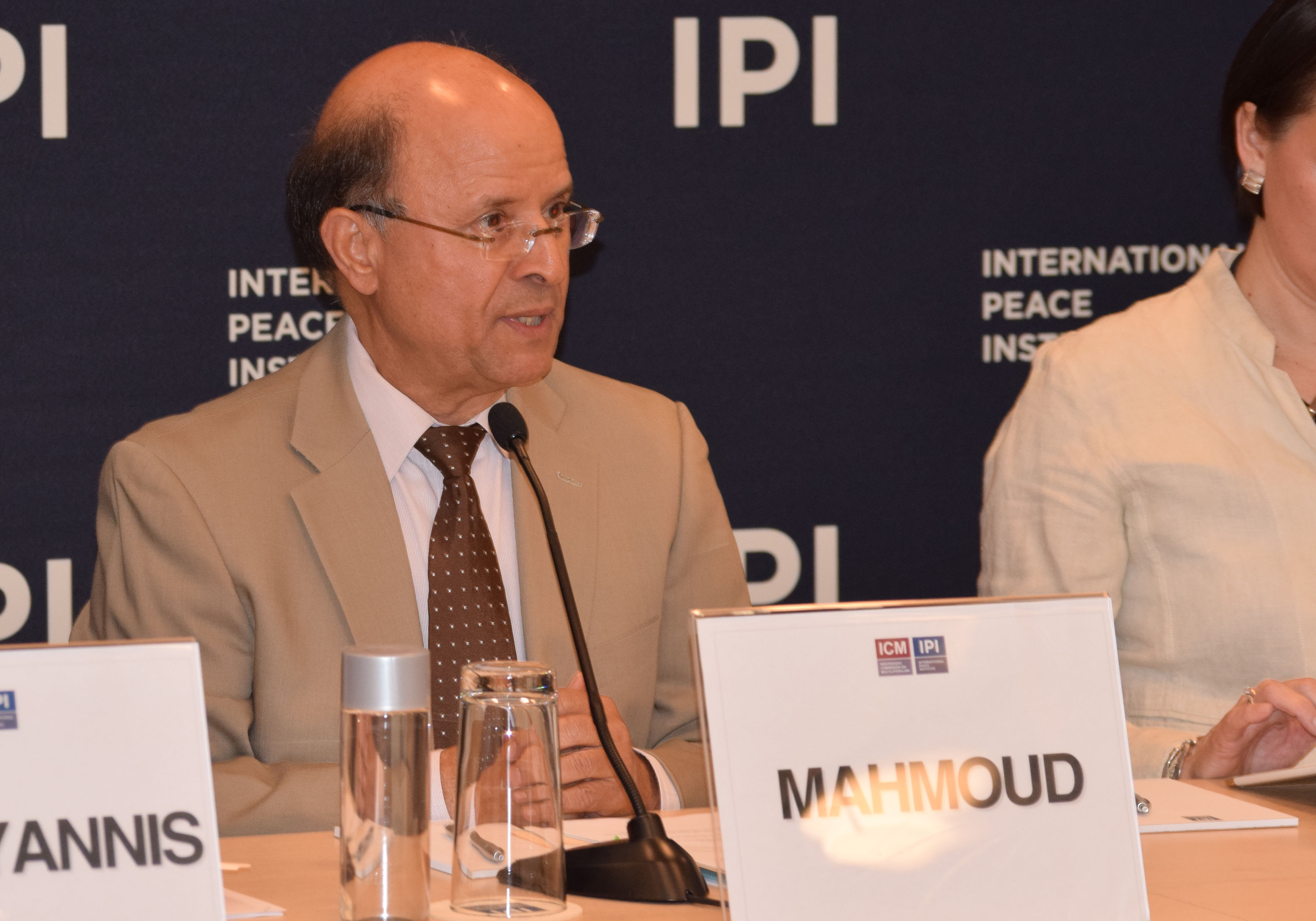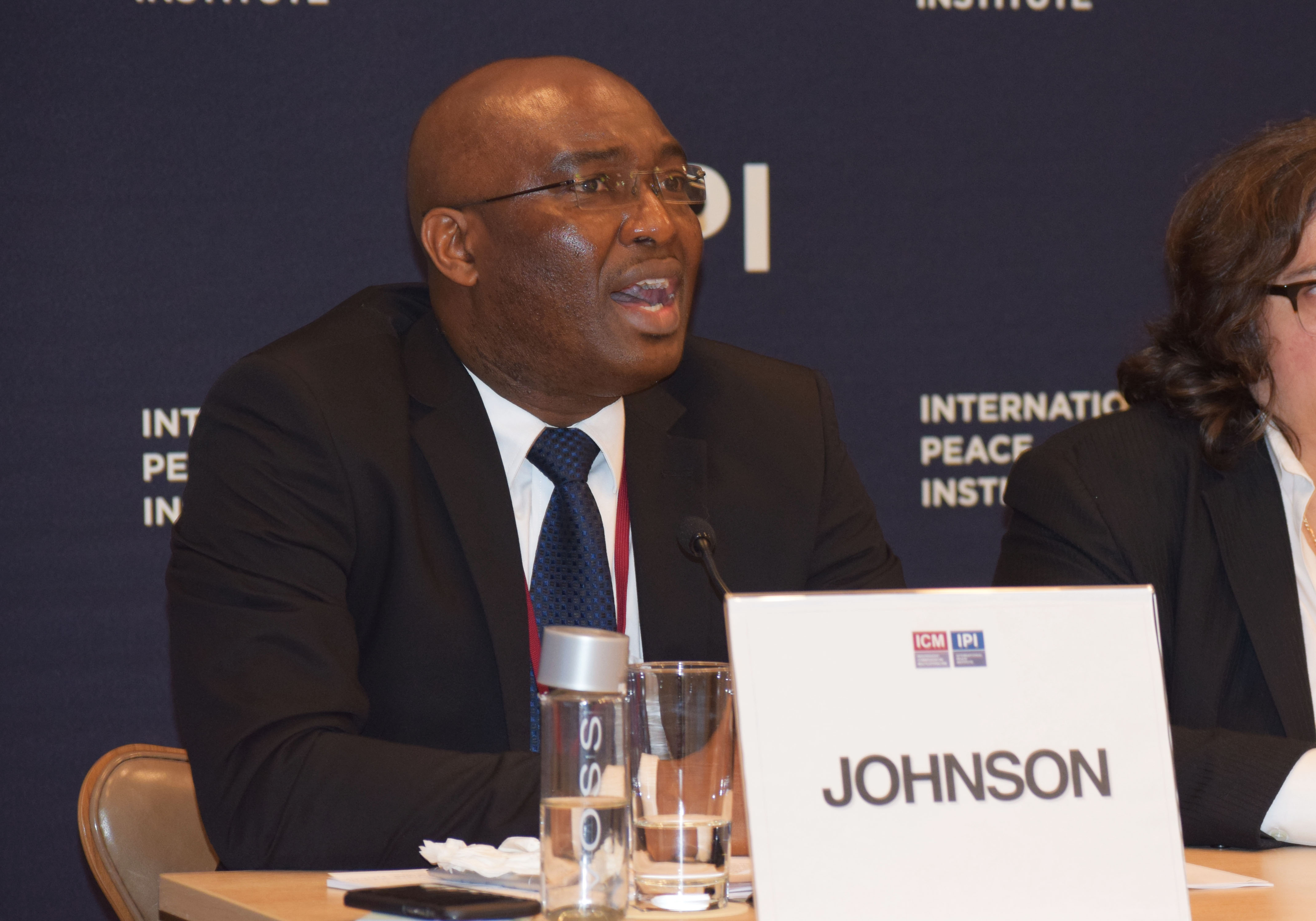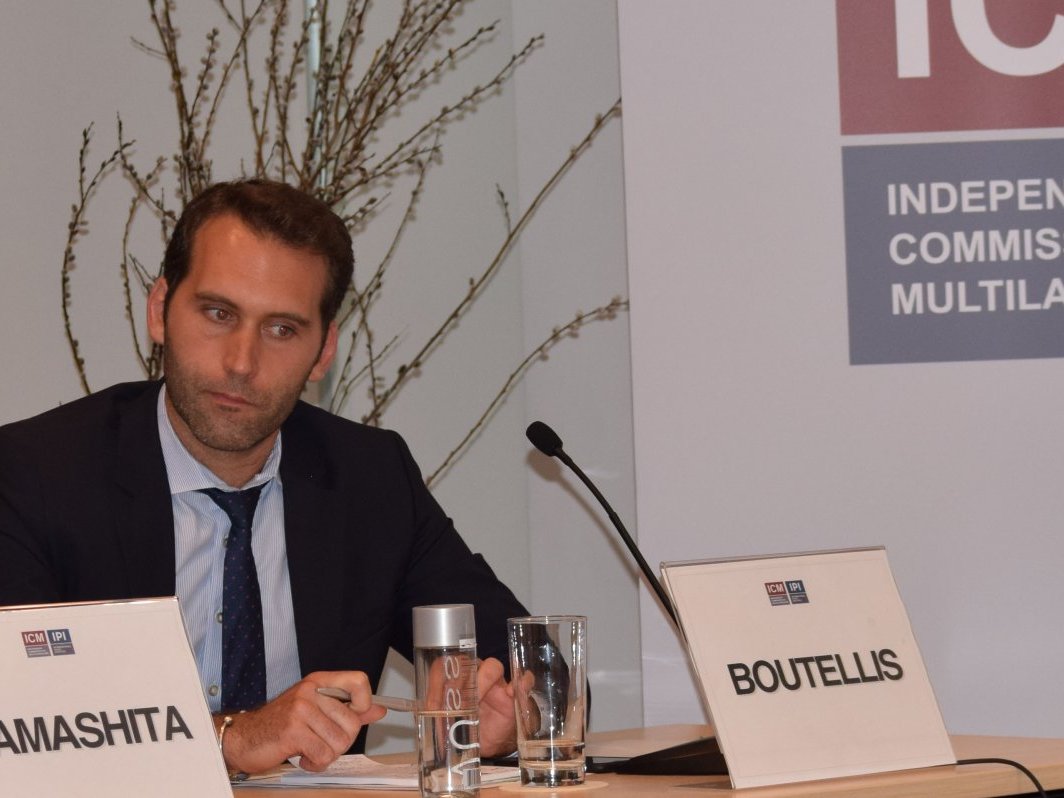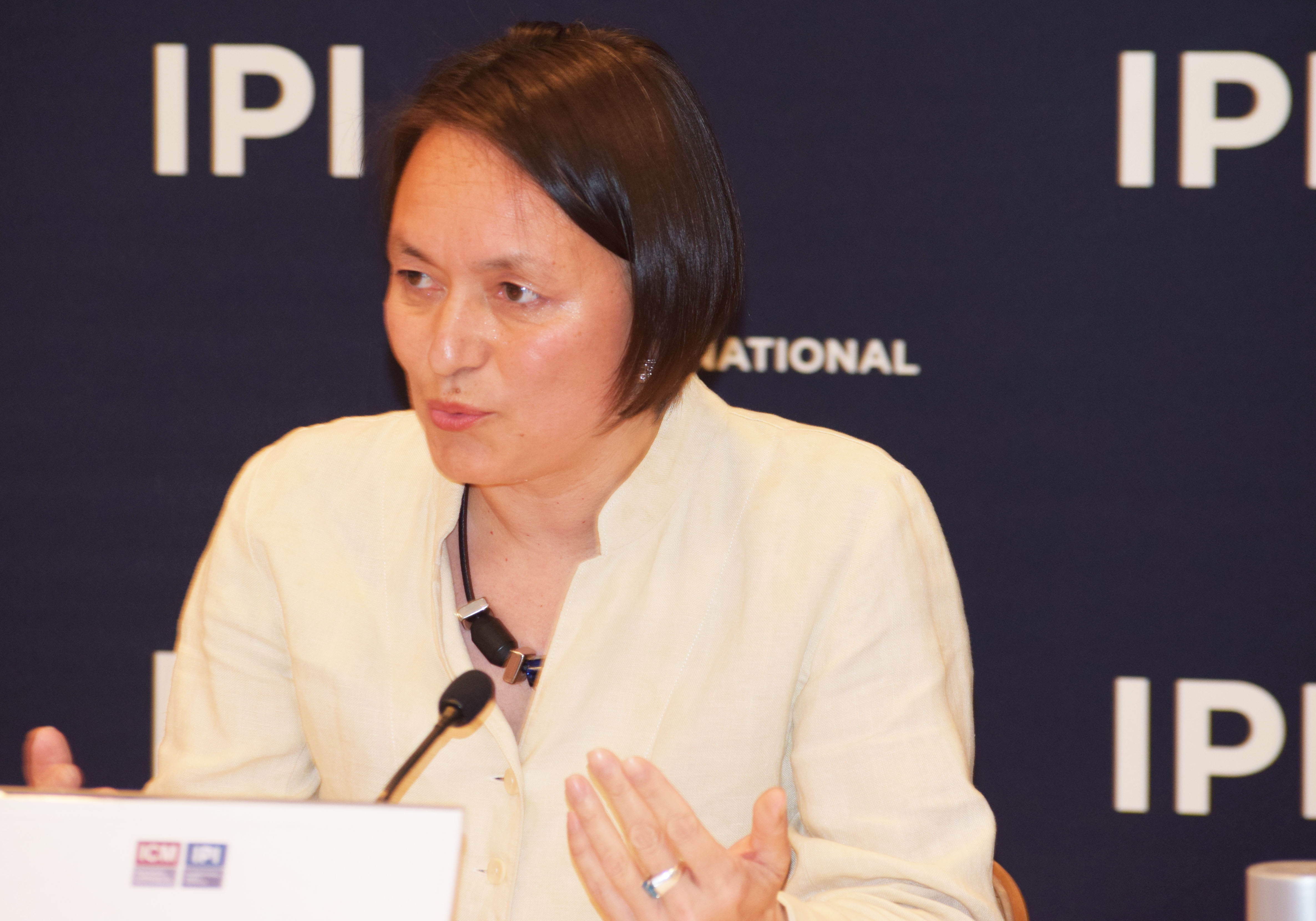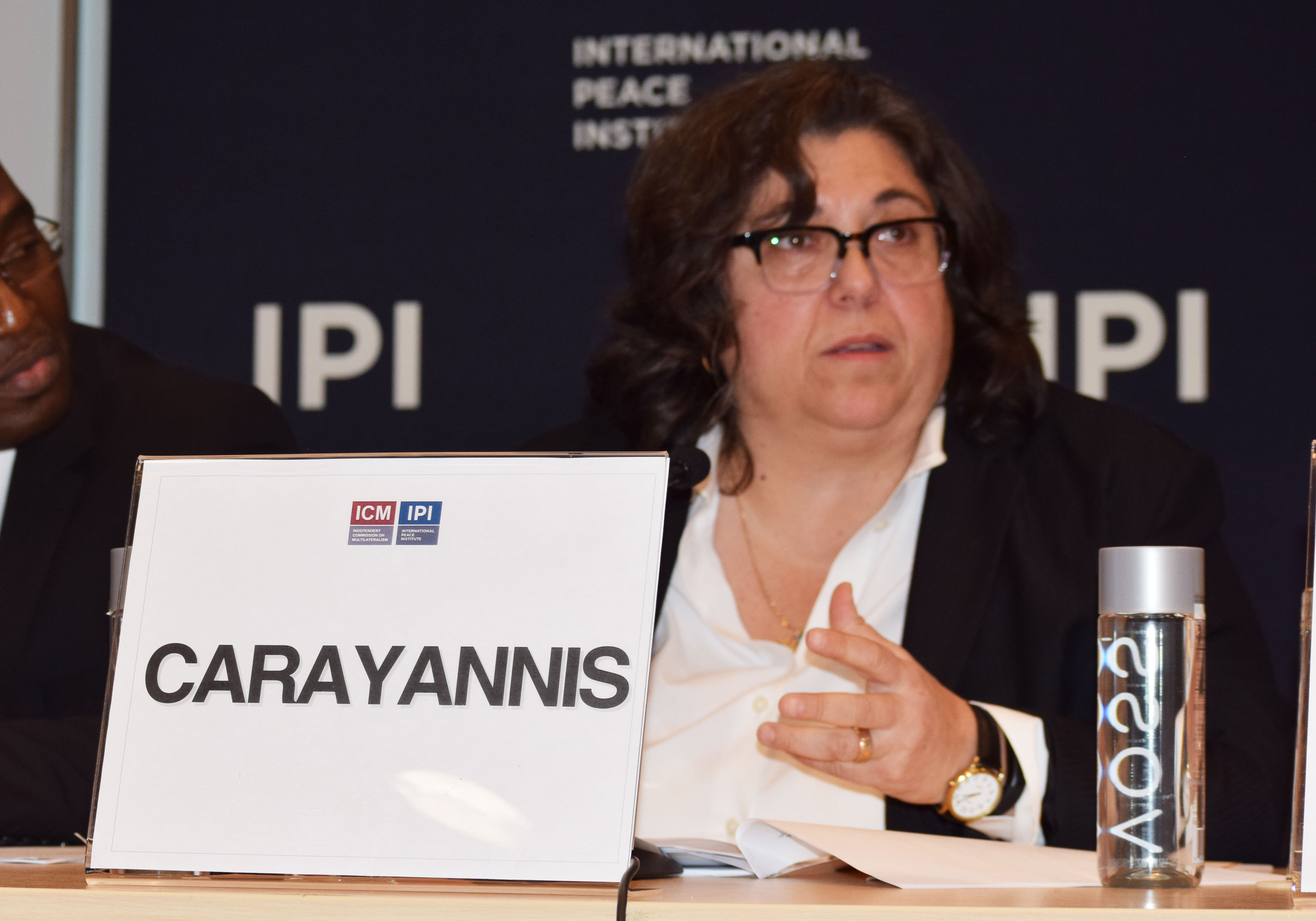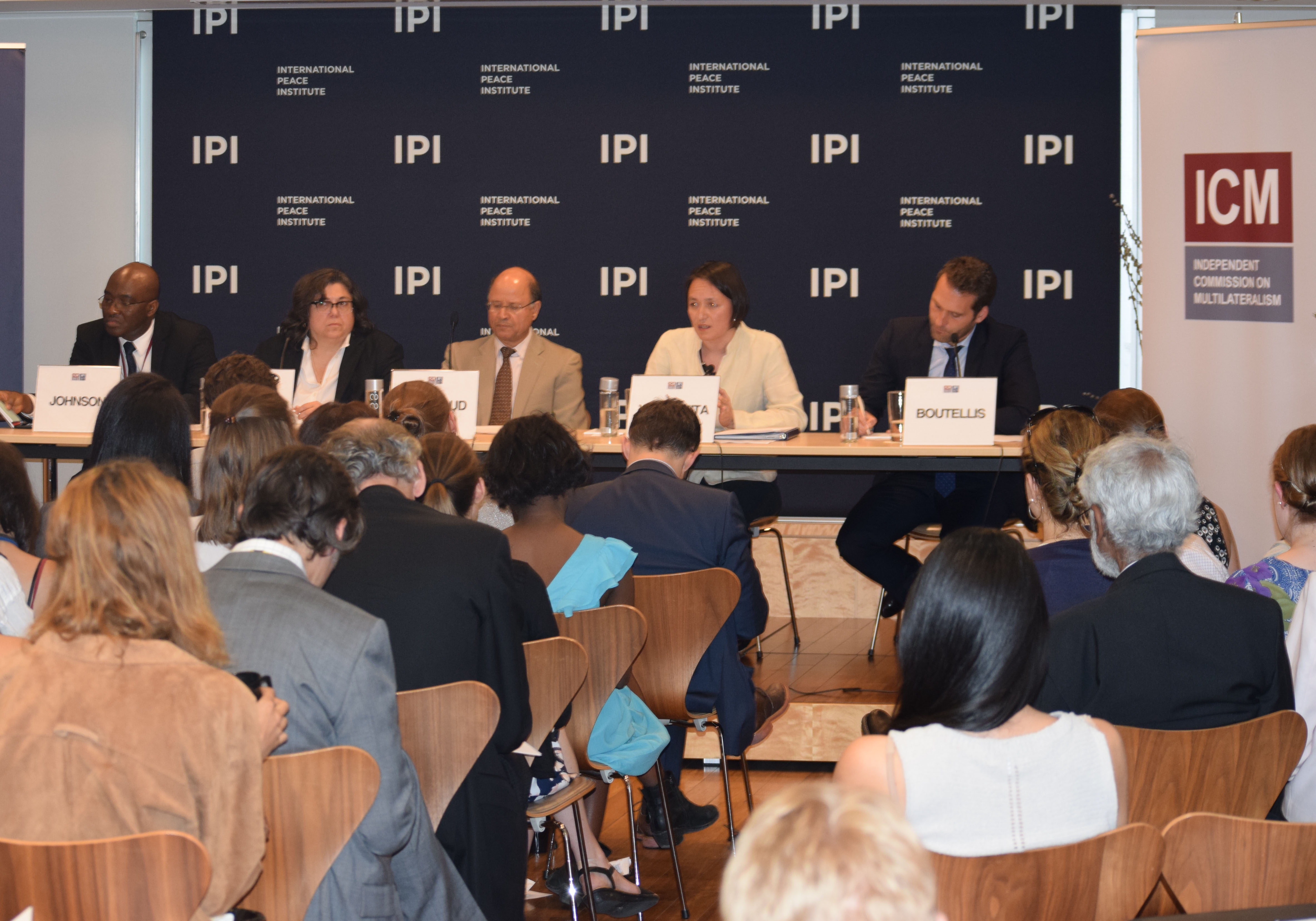The ICM hosted a public consultation on May 26th on its discussion paper: “Armed Conflict: Mediation, Conciliation, and Peacekeeping.”
Watch the webcast:
Mediation and peacekeeping are some of the most visible United Nations activities and offer important conflict management tools for the multilateral system. The increased involvement of different actors, as well as the increased presence of organized crime in conflict settings, have made recent armed conflicts resistant to peaceful settlement. Furthermore, the inability of the Security Council to lead political solutions have only exacerbated issues on the ground. While the number of armed conflicts has decreased, the number of conflict-related deaths has dramatically increased, as has the number of high-intensity, long-lasting conflicts. The culmination of these actions have prompted questions regarding the end goals of peacekeeping, the legitimacy of actors and institutions engaged in these processes, and the design of processes that are flexible and inclusive- including of women, as recognized in the Global Study on the Implementation of Resolution 1325.
The nature and ambitions of peacekeeping have greatly evolved, creating challenges for the existing peacekeeping model. In 2015, The High-Level Independent Panel on Peace Operations (HIPPO) released its report which encompassed a thorough review of UN peace operations. The HIPPO has called for UN peace operations to be more politics-focused, more context-specific, grounded in stronger partnerships, and more field and people-centric. This discussion paper assesses these reviews, additional developments such as the adoption of the historic joint resolution on the Review of the Peacebuilding Architecture and the adoption of the new concept of “sustaining peace”, as well as other challenges facing the multilateral system in the areas of mediation, peacebuilding, and peacekeeping.
This public consultation focused on the insights and recommendations of the discussion paper. We received feedback from members of civil society organizations, academia, member states, and the private sector, and consequently considered the feedback while making adjustments to the paper.
Discussants:
H.E. Mr. Philbert Johnson, Deputy Permanent Representative, Permanent Mission of Ghana to the United Nations
Mr. Arthur Boutellis, Director, Center for Peace Operations, International Peace Institute
Ms. Tatiana Carayannis, Deputy Director, Conflict Prevention and Peace Forum, Social Science Research Council
Ms. Mari Yamashita, Director, United Nations Peacebuilding Support Office
Moderator:
Dr. Youssef Mahmoud, Senior Adviser, International Peace Institute

